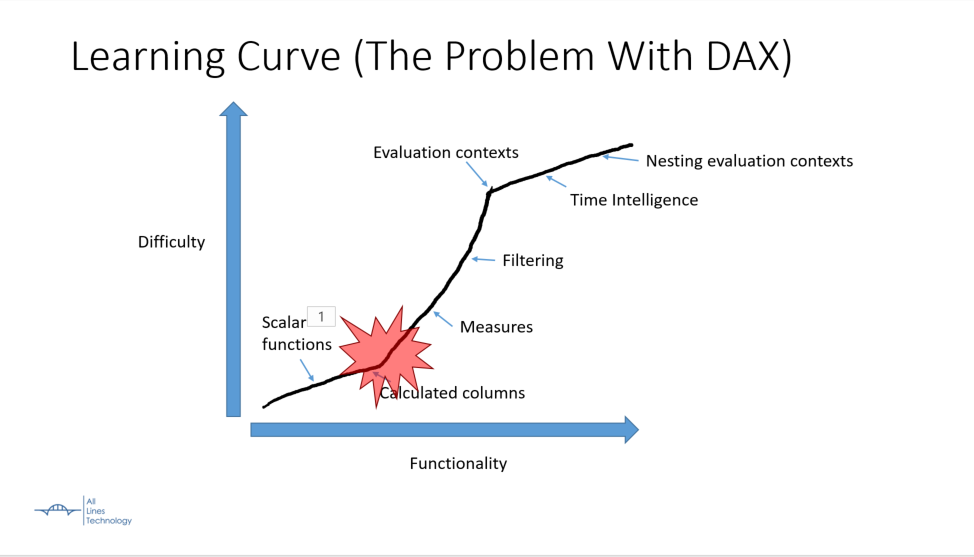So, PASS Summit is making changes to how the curriculum is managed. There’s been some conversation about these changes and whether they are good are not. I thought I would enter the conversation and add my thoughts.
Before that though, I want to thank the board for the work that they do and working on these changes. I think that being on the board is difficult work. It seems to me that no matter what changes they make, there will be criticism. Often, the criticism is the loudest of all the commentary. Sure, I agree there is more they could do to involve community feedback; however, the fact that they have a survey and community townhall is evidence that they are listening and value our opinion.
So, I’m going to try to focus on the positives I see, instead of criticizing. Overall, I think these changes are a good move. I wrote last PASS that I think the data platform is broadening. And while I think that the idea of a data profession presents challenges, I think it’s reflective of trends going on:
- The devops-ification of the data platform
- A broadening of the surface area of “data platform”
- Virtualization, Moore’s law and Cloud
These are all forces that are causing more technologies to fall under a broader and broader grouping. They are also causing a blurring what used to be more distinct roles. And as a result, PASS Summit is responding to that change.
Having a broader, more nuanced set of topics requires more control. If you look at companies like Pluralsight or Lynda, they have people whose job is to manage a curriculum. And part of that job is aggressively targeting specific topics to avoid gaps. It also means doing market analysis to see what education people want and need, not just what people want to present on. These goals makes sense for Summit too.
Part of targeting specific topics, is acknowledging that there are top-level experts in those content areas. If you want something on DAX, reach out to Marco Russo. If you want something on U-SQL, reach out to Michael Rys. Dealing with the changes in the platform require a different approach. In some ways, it would be a shame to to not try to get access to the top leaders of specific topic areas.
I admit that it’s reasonable to worry about Summit becoming some sort of elite club of presenters. Part of the solution is transparency, transparency, transparency. The other part of the solution is answering the question “How do I present at Summit?”
There’s a joke about industries with no entry level jobs. How do those types of industries exist? How do they not just die out? But I don’t think entry level is the issue here. There are tons of opportunities to speak at user groups. SQL Saturdays are a clear stepping stone after that. The next step is…less clear. Do you blog? Do you speak at virtual user groups? Do you go to 20 SQL Saturdays a year?
No seriously, I don’t know. Can someone tell me? You wanna know why I started presenting at virtual user groups? Because I asked someone how to get to Summit, and they suggested that as a stepping stone. I think it’s important to give “new” speakers like me a path for reaching the top.
It’s straightforward to get your white belt in speaking, even your green belt. But it’s a lot less clear how to get your brown or black belt. That’s an area I’d love to see more people talk about. A good example is Brent Ozar’s Career Internals.
That being said, I’m happy with the minimum bar of experience for applying. The current minimum is 3 presentations. I honestly think it could be 5 and it’d be fine. This is a good balance between requiring a base level, while not discouraging new speakers. Three is so low, you could trip over it. That’s two user groups and a SQL Saturday. I can promise you that when I had given only 3 presentations, I was in no way qualified to present to PASS.
One final thing I’m really happy about is that they are going to give guidance on the content they want, and they are going to ask people to specify a general content area they are focusing. I think this is a smart move. The current system just wasn’t sustainable.
The old system seemed to encourage just throwing as much stuff against the wall as you could and see if anything stuck. I don’t think we want to incentivize people submitting more than 3-4 sessions. It puts an undue burden on the people reviewing the submissions. I honestly think it’d be fine to have an explicit limit on submissions, but I expect that would make some waves.
Overall, I think they are making moves in the right direction and I like it.
